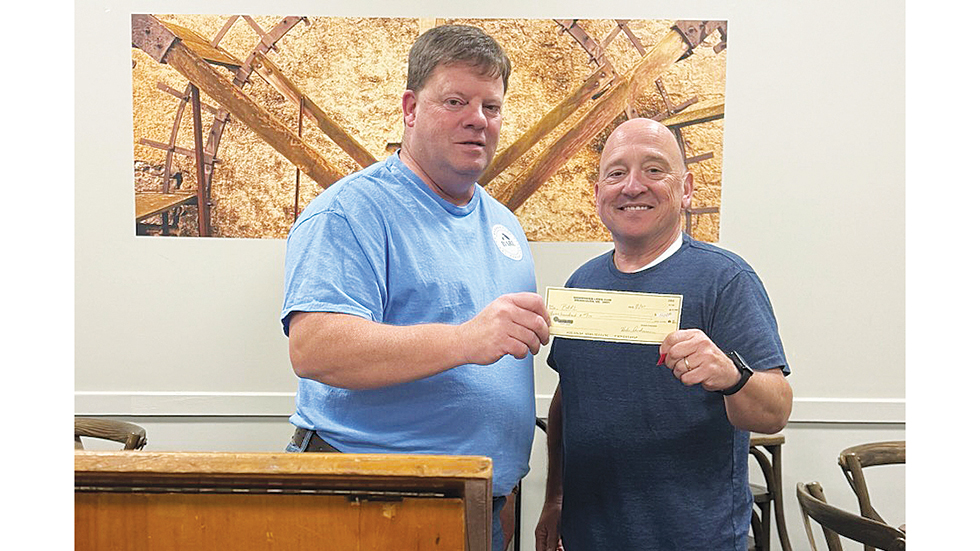KLCB survey finds county almost litter free
Published 6:00 am Wednesday, December 9, 2009
Lincoln County is as clean and litter-free as it’s ever been,officials with Keep Lincoln County Beautiful report.
KLCB member Homer Richardson delivered the organization’s annuallitter survey findings to county supervisors Monday, happilypointing to a 10-year downward trend in litter that brings thecounty-wide rating for 2009 to between “no litter” and “slightlylittered.” The new rating is the best yet, and this is the firstyear all five county districts and the City of Brookhaven remainedbelow a 1.5 rating on the survey’s 0-4 scale.
“I’d like to make some recommendations, but at this point Idon’t know what else to do,” Richardson told supervisors. “We arealmost down to where we have no change from one year toanother.”
Trending
Lincoln County’s continuing drive toward cleanliness has been sosuccessful the change from 2008 to 2009 overall was 2.88 percent -barely noticeable, but a desired result. KLCB surveyors arrive attheir ratings by examining 90 permanent, secret locations forchange from year to year. The locations are divided equally amongthe city and all five districts.
The biggest improvement was seen in District Five, where thelitter rating improved by an impressive 25.81 percent. DistrictThree’s rating improved by 13.98 percent, while District Two’srating came up 3.38 percent. District Five remained as clean aslast year, recording no change.
District One and the city were the only beats that displayed anincrease in litter. The decrease in the city’s rating was minimal,falling by 6.19 percent, while District One saw a bigger jump inthe wrong direction at 9.76 percent.
Lincoln County Litter Control Coordinator Ronnie Durr said mostof the litter still plaguing local roadsides is “little stuff” -paper waste and fast food remnants thrown by litterbugs in passingvehicles.
“You’re probably never going to get much better than we arenow,” he said. “That type of trash is just something that we haveall the time.”
The county has come a long, long way since Durr first came onboard in 1998. Then, the county was hovering near the “littered”rating and the problem came not from small piece of trash onroadsides, but from illegal dump sites containing large, bulkygarbage like tires and broken appliances.
Trending
But a combination of efforts have gotten the county back ontrack. KLCB members began hosting the annual Great AmericanCleanup, which provides citizens an outlet for large items that arehard to dispose of, and Durr and inmates from the Lincoln CountyJail began cleaning up illegal dump sites. KLCB also began settingup shop in schools to reach children before they develop litteringhabits, and created a presence at local events like the Ole BrookFestival.
Durr said the combination of presence and hard work has helpedcut the amount of litter in the county.
“I believe people are seeing the effort that has been put intokeeping our county clean, so they’re just not throwing that stuffout as readily as they used to,” he said.
The county isn’t “home free,” however, as illegal dumpingcontinues in some areas, Durr said. He also warned county residentsthat he would soon be targeting a new kind of litter – unsightlytrash bins.
“We have a lot of containers out here in the county that havebeen out here a long, long time,” Durr said. “They’re unsightly,and they really are a nuisance to the crews that cut grass.”
Durr said he would begin notifying the owners of dilapidatedtrash bins in early January. Failure to repair or replace the binsafter notification will result in removal, he said.
As for the future, litterbugs will always be an obstacle to alitter-free Lincoln County, Richardson said, but they can becontrolled somewhat.
Richardson said concerned citizens may call 1-800-545-3764, or*47 on a cellular phone, to report litterbugs’ license plate numberand location. Litterbugs reported in this manner will be notifiedthey have been spotted littering, but no actual enforcement willoccur.
If a law enforcement officer sees someone litter, the penaltiescan considerably lighten the litterbug’s wallet. Richardson saidfirst offense fines are $50, second offenses are $250 and third andbeyond are $500, with the possibility of community service or jailtime.
“It’s going to require more enforcement when people see someonelitter,” he said. “The people who throw this stuff out are notgoing to stop because they realize it’s not nice.”





